#African vacation
Explore tagged Tumblr posts
Text

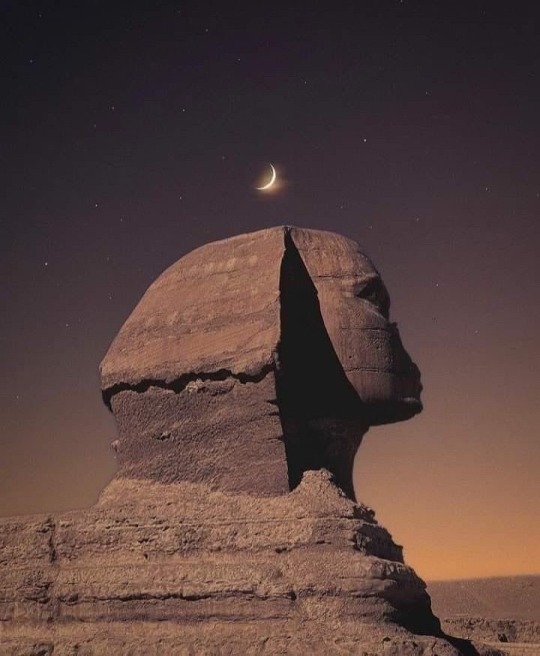




Muse Top Left: Gazelle Mone’t
#🌍#gazellemonet#adventure#sahara#cats#black women moodboard#moodboard#travel moodboard#travel aesthetic#desert#African vacation#bohemian#afrodesiac
21 notes
·
View notes
Text

instagram @ef0si
#black women#african women#black girl moodboard#melanin#black girl aesthetic#black girl fashion#darkskin women#curve model#travel aesthetic#vacation aesthetic
1K notes
·
View notes
Text






Poolside Mexican Vacation
#my collage#gay#black gay men#african american#lgbt#black gay magic#blackboyjoy#gay pride#lgbt pride#black pride#mexico#vacation#summer#poolside#poolcore#summertime#tulum#playa del carmen#summer holiday#swimming pool
54 notes
·
View notes
Text

Beautiful Boa Vista
#capeverdean#capeverde#west africa#islands#travel#cape verde#african#africa#capvert#exotic#boa vista#stars#stargazing#beaches#vacation#african culture
5 notes
·
View notes
Text

On holiday 🌴🇵🇷
IG: stellaproci
#black tumblr#darkskin#african#dark skin#me#melanin#black queen#essence#blackgirl#fashion#vacation#holiday#puerto rico
17 notes
·
View notes
Text
they made me regress back to a 9yo
#me soup#im so sensitive when u take me away from literally all my comforts#everything sucks 😞 im crying like an actual little child and nothing is fixing it#i cant do this anymore this heat is literally murdering me and all my spirit#i have nothing left to give im emptied out#too much change too much new things and they also wanted m to take my damn new shoes ugh shut up 😭#FOUR MOUR WEEKS FUCKKKK I MISS MY FRIENDS I CANT DO THIS#now i remember why i was miserable every single year we went its like the worst aprts of all my life mixed in together#ugh and i could pretend so good for JUST like . two days. time feels like its expanding infinitely . im dyingggggfgg.#if i go to hell this is what ill have to go through forever i think#hashtag family vacation hashtag north african traditions hashtag beach hashtag love live scream
4 notes
·
View notes
Text

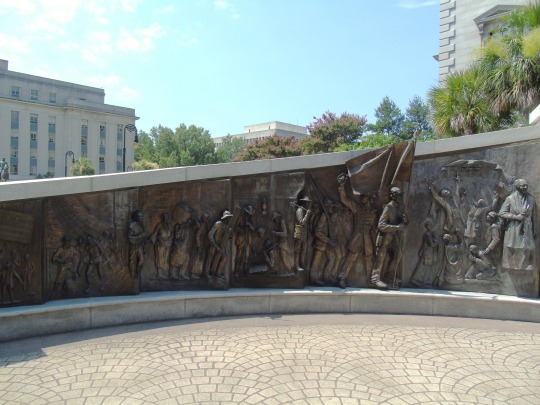
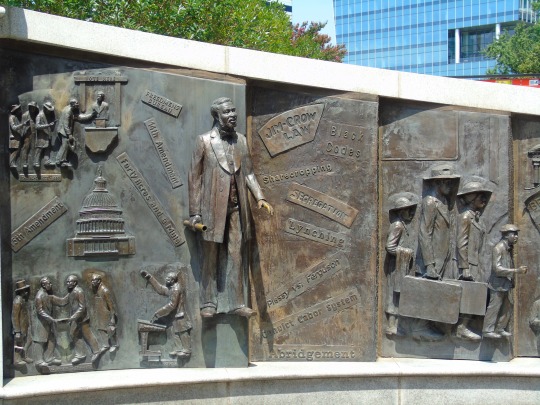



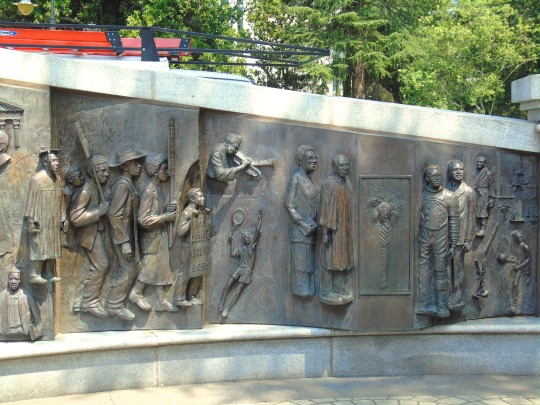

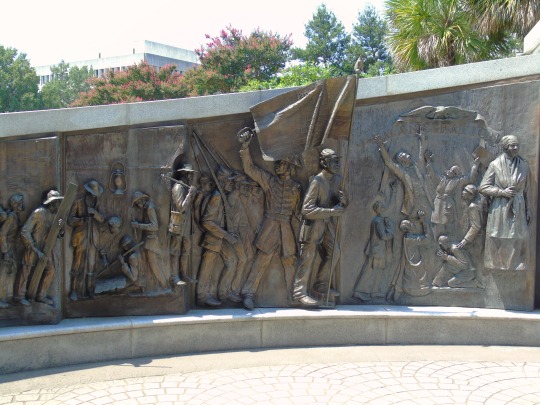
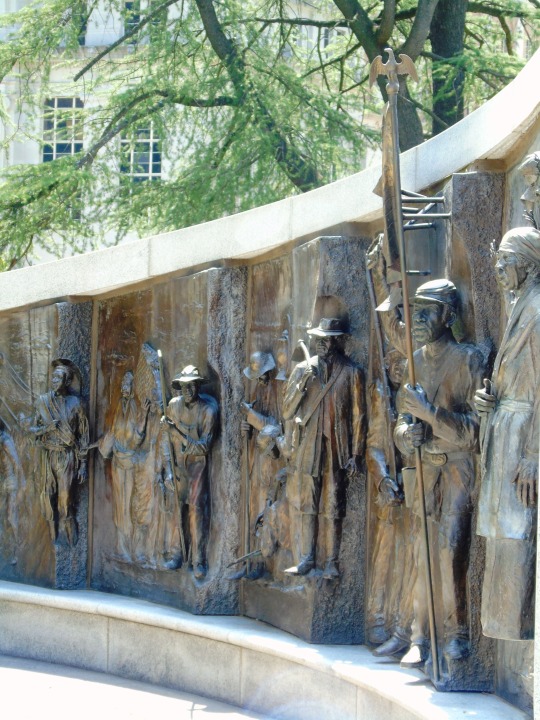

“The first of its kind on any of the nation’s state house grounds,” the African-American History Monument was sculptured by Ed Dwight of Colorado and was dedicated on March 29, 2001.
#African-American History Monument by Ed Dwight#dedicated#29 March 2001#anniversary#US history#South Carolina#Columbia#public art#sculpture#summer 2016#cityscape#landmark#tourist attraction#vacation#travel#South Carolina State House#John R. Niernsee#Classical Revival#USA#original photography#architecture#Southeastern USA
8 notes
·
View notes
Text


#heartbreak#nostalgia#film#filmedit#african#retro#retro aesthetic#love#unrequited love#beach#ocean#vacation
4 notes
·
View notes
Text






➫ monthly book round-up: september 2024
books read: 6 [-25%] average rating: 3.92 [+5%] average speed: 15.5 days [+19%] total pages: 2,265 [-5%] yearly goal progress: 61/50 [122%] best of the month: an african history of africa, zeinab badawi worst of the month: the muse, jessie burton
5* reads:
an african history of africa: from the dawn of humanity to independence, zeinab badawi
4* reads:
as long as the lemon trees grow, zoulfa katouh
4.5* reads:
the body in the library, agatha christie
3.5* reads:
solomon time: adventures in the south pacific, will randall
you and me on vacation, emily henry
3* reads:
the muse, jessie burton
currently reading:
disorientation, elaine hsieh chou
the house of broken bricks, fiona williams
#monthly roundup#an african history of africa#zeinab badawi#the body in the library#agatha christie#the muse#jessie burton#solomon time#will randall#you and me on vacation#people we meet on vacation#emily henry#as long as the lemon trees grow#zoulfa katouh#currently reading#2024 reads#booklr#bookblr#bookworm#book blog
3 notes
·
View notes
Text

I named this one “Girlfriend”
#art#artists on tumblr#manga art#african art#artwork#traditional art#anime and manga#afrocentric#artist#digital artist#african#aesthetics#aesthetic#aeroplane#air#clouds#trippy#romance#vacation#vip#elite#afrocentrism#sketch#illustrator#illustration#illustrative art
3 notes
·
View notes
Text





(Lake Trip to Mangochi with Aeysha 2019)
Take a trip with me down memory lane, to one of my favourite beach vacations that I ever went on, it was with my friends and we stayed at one of her friend's family cottage by the lake in Mangochi. Just a few picturesque shots from my archive. I really miss my tumblr girl era, I think I'm gonna just get back at it. I used to love blogging about spots I went to and trips I enjoyed. Looking back at these photos just kind of reminded me of that era of my life and how much I loved it. Returning back to who you were after you've been lost is a funny thing. Cheers to finding me again.
But yeah, if you're ever looking for an amazing beach vacation, I highly recommend The Makokola Retreat, Mangochi, Malawi.
P.S.
I love that boat photo. Definitely one of my favorites.
2 notes
·
View notes
Text
Brand New 2 Story Houston Airbnb!
Welcome to La Vie Est Belle at Mimi’s, the ornate and hidden gem of Houston! Come enjoy our brand-new and fully furnished two-story! We have free Netflix and quality WIFI. Our estate is in a peaceful neighborhood, just 2 minutes away from a variety of grocery stores, restaurants and shopping centers. Want to visit the city? No problem! Our home is close to Hwy 290 for a smooth trip to Downtown Houston (30 minutes) or The Galleria (20 minutes). 35 min from Bush Airport 40 min from Hobby Airport
https://www.airbnb.com/rooms/48899247?source_impression_id=p3_1710441563_Vx04McnLMznpeBMK












Check out our 2 Story Houston Airbnb and book! Share with Friends and Family!
https://www.airbnb.com/rooms/48899247?source_impression_id=p3_1710441563_Vx04McnLMznpeBMK
#airbnb#hotel#houston#houstontx#texas#black tumblr#black twitter#blackout#new york#nyc#atlanta#chicago#los angeles#california#orlando#florida#vacation#africa#africans#west africa#cameroon#cameroonian#nigeria#afrocentric#art#photography#memes#travel#tourist
4 notes
·
View notes
Text






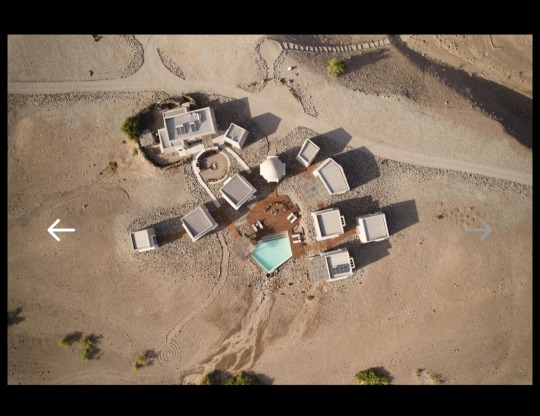

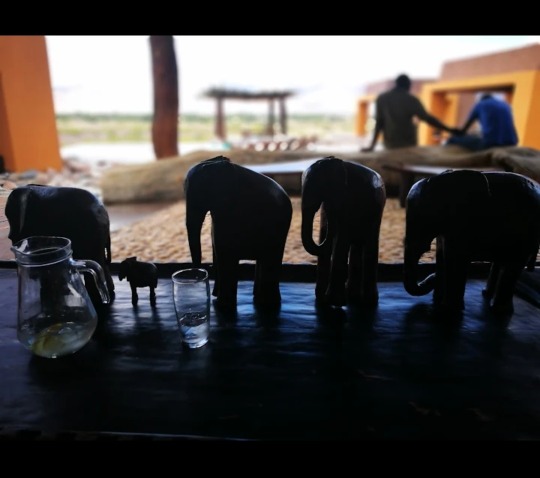

okahirongo elephant lodge
#namibia#namib desert#Namibian holiday#Desert holiday#African holiday#Vacation#southern africa#Landscape#architecture#elephant#Wild animals#Beautiful africa#night sky#night time#day time#tumblr dump#tumblr diary
4 notes
·
View notes
Text

Maio🇨🇻
#capeverdean#capeverde#beaches#maio#west africa#islands#travel#cape verde#vacation#african#africa#capvert#exotic#relax#nostress
9 notes
·
View notes
Text
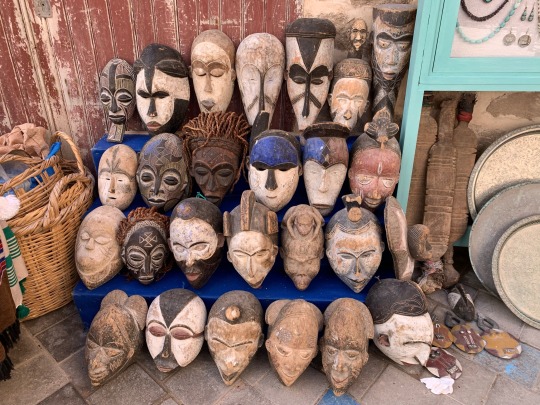
African art
#africa#african art#african mask#travel photo blog#travel photography#morrocco#moroccan#morocco#essaouira#mogador#face mask#mask#vacation#photoblog#tummy#photobugcommunity#travel
4 notes
·
View notes
Text
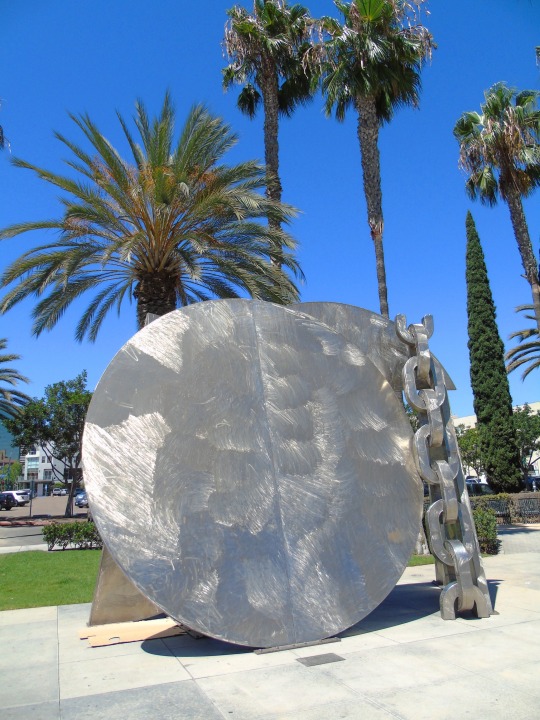

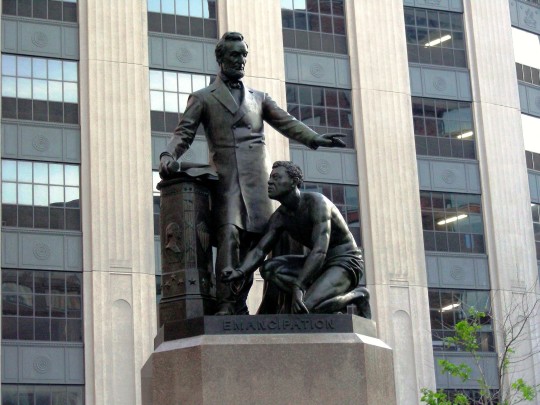


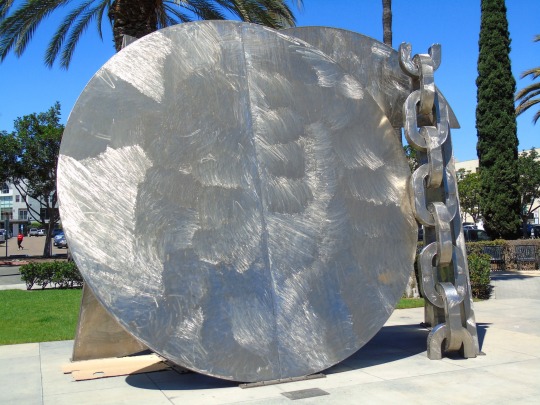
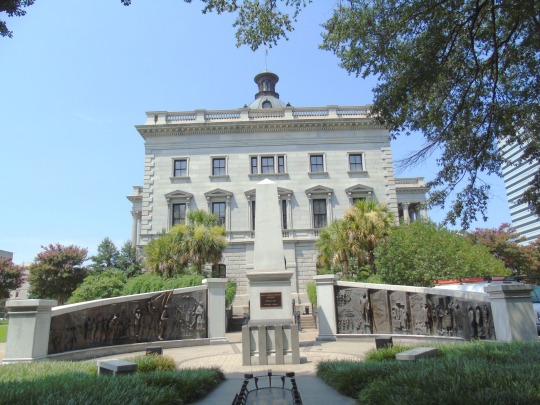


International Day for the Abolition Of Slavery
International Day for the Abolition of Slavery happens annually on December 2. On this day in 1949, the General Assembly of the United Nations adopted the Convention for the Suppression of the Traffic in Persons and the Exploitation of the Prostitution of Others. This day is dedicated to ending modern forms of slavery, such as sexual exploitation, human trafficking, the most heinous kinds of child labor, forced marriage, and the forced recruitment of children for use in armed conflict.
It is about raising awareness and reinforcing global efforts in combatting the scourge of modern slavery. Governments, organizations, and individuals are entreated to take this day specifically as an opportunity to denounce the atrocities of slavery in its modern form that still exist in the world. Fun fact: The aim of International Day for the Abolition of Slavery is different from that of International Day for the Remembrance of the Slave Trade and its Abolition, the latter of which is a day to reflect on the atrocities committed during the Transatlantic Slave Trade Era.
History of International Day for the Abolition of Slavery
The International Day for the Abolition of Slavery focuses on eradicating modern forms of slavery like trafficking, sexual exploitation, child labor, forced marriage, and forced recruitment of children into armed conflict. The Day is observed on December 2, which marks the same date that the U.N. Convention for the Suppression of the Traffic in Persons and the Exploitation of the Prostitution of Others was adopted by its member states on December 2, 1949, and it is expected to be observed by governments, organizations, and people all around the world as a day specifically set aside to rebuke all forms of modern-day slavery that still exist in the world today.
The International Labor Organization puts the number of victims of modern slavery at 40 million worldwide. And although modern slavery is not defined by any binding law, the word encompasses practices such as forced labor, debt bondage, forced marriage, human trafficking, and every other situation of exploitation under which a victim is trapped because of threats of violence, coercion, deception, or abuse of power.
From prehistoric times to the present, slavery has spanned various nations, civilizations, and religions. Similarly, victims of slavery hailed from a wide range of races and religious backgrounds. Enslaved people���s social, economic, and legal standing have varied greatly across times and places. Africans were kidnapped in the 17th and 18th centuries, sold into slavery in the American colonies, and exploited to work as slaves in the production of products such as tobacco and cotton. Though precise estimates are impossible to provide, some historians believe that 6 to 7 million enslaved individuals were carried to the New World during the 18th century alone, robbing Africa of some of its strongest and healthiest men and women.
Lincoln issued a preliminary emancipation proclamation on September 22, 1862, and on January 1, 1863, he made it official that slaves within any U.S. state, or designated part of a state shall be then and forever be free. The Emancipation Proclamation freed almost 3 million enslaved individuals in the rebel states, depriving the Confederacy of the majority of its labor forces and swaying foreign public opinion heavily in favor of the Union. Though the Emancipation Proclamation did not formally end slavery in America—that would come with the passage of the 13th Amendment after the Civil War ended in 1865—some 186,000 Black troops joined the Union Army, and approximately 38,000 died.
Even though slavery is no longer legal anywhere in the world, human trafficking is still nevertheless a global issue. As of 2013, approximately 25-40 million people were enslaved, with the majority of these people living in Asia. People were sold into slavery during Sudan’s Second Civil War, which lasted from 1983 to 2005. Evidence of child trafficking and slavery on cocoa plantations in West Africa appeared in the late 1990s.
Although, since 1995, the International Day for the Abolition of Slavery has shone the spotlight on atrocities of modern slavery and tried to inspire commitment to better humanity, December 2 wasn’t recognized as the International Day for the Abolition of Slavery until exactly a decade after a U.N. Working Group on Slavery submitted a report that tendered the date for consideration as the World Day for the Abolition of Slavery in 1985.
International Day for the Abolition of Slavery timeline
1619
Starting Point Of Slavery In America
A lot of people consider 1619 to be a starting point of slavery in America.
17th Century
Poor Europeans Were Replaced With African Slaves
In North America European settlers turns to African slaves instead of indentured servants who were often poor Europeans.
1770
Crispus Attucks is killed
An escaped slave man is one of the first people to be killed by British soldiers during the Boston Massacre.
1800
Slave Rebellion
Gabriel Prosser rebels against his masters in Richmond, Virginia, in the U.S.
1808
Congress Proscribes Slavery
Congress outlaws the importation of enslaved persons, although the push for this ban began earlier in the northern colonies, during the American Revolution.
1866
Last Dance in Cuba
The last known slave ship carries captives to Cuba in 1866.
1995
First Celebration
International Day for the Abolition of Slavery is first observed in 1995 following the report by a United Nations Working Group on slavery a decade earlier.
2016
U.N.’s Landmark Forced Labor Protocol
The International Labour Organization adopts a “new legally binding Protocol” meant to help in the global efforts to eliminate forced labor, which is implemented in November 2016.
International Day for the Abolition of Slavery FAQs
Which country first abolished slavery?
Britain abolished slavery throughout its empire in 1833; France and the U.S. followed in 1848 and 1865, respectively.
Who is responsible for the abolition of slavery?
William Wilberforce (1759–1833), a British politician and philanthropist, led the movement to abolish the slave trade.
Which was the last country to abolish slavery?
Although according to records, the last known slave ship carried captives to Cuba in 1866, Mauritania is known as the last country in the world to abolish slavery in 1981, nearly 120 years after Abraham Lincoln issued the Emancipation Proclamation in the United States.
How To Observe The International Day for the Abolition of Slavery
Become a conscious consumer: One way to observe the International Day for the Abolition of Slavery and to bring a meaningful change is to commit to only buying goods labeled as 'fair trade,' indicating that those goods are produced ethically. Check the companies you purchase from and their supply chains to ensure there was no slave labor used in producing the goods. You can also call on businesses to end forced labor and slavery in their supply chains.
Commit to ethical labor sourcing: There’s no better way to support the day for people who own businesses than to commit to producing your goods and delivering your services ethically. You may also persuade fellow entrepreneurs and even mark your goods as being produced through ethical labor to get even more patronage.
Stop oppressing others: Look inward, you may be oppressing someone or some people in a way. If you find that you are guilty of this then it is not too late to change your ways. After reading about the history of slaves you must understand how those being oppressed feel and you would not want to be the oppressor.
5 Things You Should Know About Slave Trade And The Abolition Of Slavery
40 million people face modern-day slavery: According to the International Labour Organisation, more than 40 million people worldwide are victims of modern slavery, such as forced labor, debt bondage, forced marriage, and human trafficking.
Forced labor victims create a $150 billion profit: The International Labour Organization estimates that there are currently 21 million forced labor victims worldwide creating a total of $150 billion in illegal profits in the private economy each year.
One in four of the enslaved are children: An estimated one in four people witnessing forms of modern slavery are children.
12 million enslaved Africans transportedAccording to records, the Transatlantic Slave Trade saw an estimated 12 million enslaved Africans transported across the Atlantic Ocean to the Americas from the 16th to the 19th century.
Many were shipped to South America: The majority of enslaved Africans during the Transatlantic Slave Trade were transported to the Caribbean or Brazil.
Why International Day for the Abolition of Slavery Is Important
It’s an opportunity to make a change: The goal of the International Day for the Abolition of Slavery is to get enough people to be aware of the scourge of modern slavery and commit to ending it. The day provides an opportunity to make a change. By talking about it to people and persuading them to commit to ending it, the day serves as an avenue to make a lasting impact in our world.
It highlights humanity’s shortcomings: There’s no better motivation to collectively work towards a better and just future than having a look at the thing we are currently bad at. Because International Day for the Abolition of Slavery highlights our errors in the area of slavery and the traditional beliefs and institutions that have actively supported it, it serves as a motivation for us to demand something better. The slave trade era was not fun, people suffered a lot and were treated as less than humans while working for their masters. As we celebrate International Day for the Abolition of Slavery, we are celebrating the fact that slavery has been put to an end.
It helps recommit us to humanity’s service: Yes — International Day for the Abolition of Slavery helps to recommit us to the service of those who have been forced into some kind of modern slavery. It serves as a day to further connect with our humanity. When we remember that Abolition Day celebrates the end of slavery, we would be grateful that we were not born in the slave trade era. Knowing the struggles that slaves went through in that era would make us appreciate our freedom more.
Source
#International Day for the Abolition of Slavery#San Diego#California#USA#Breaking the Chains by Melvin Edwards#monument#public art#Boston#summer 2014#2009#original photography#cityscape#travel#vacation#InternationalDayfortheAbolitionofSlavery#2 December#Emancipation Memorial#Freedman's Memorial#Emancipation Group#Thomas Ball#Charleston#2016#Old Slave Mart Museum#African-American History Monument by Ed Dwight#South Carolina State House#Columbia#architecture#tourist attraction#landmark
2 notes
·
View notes